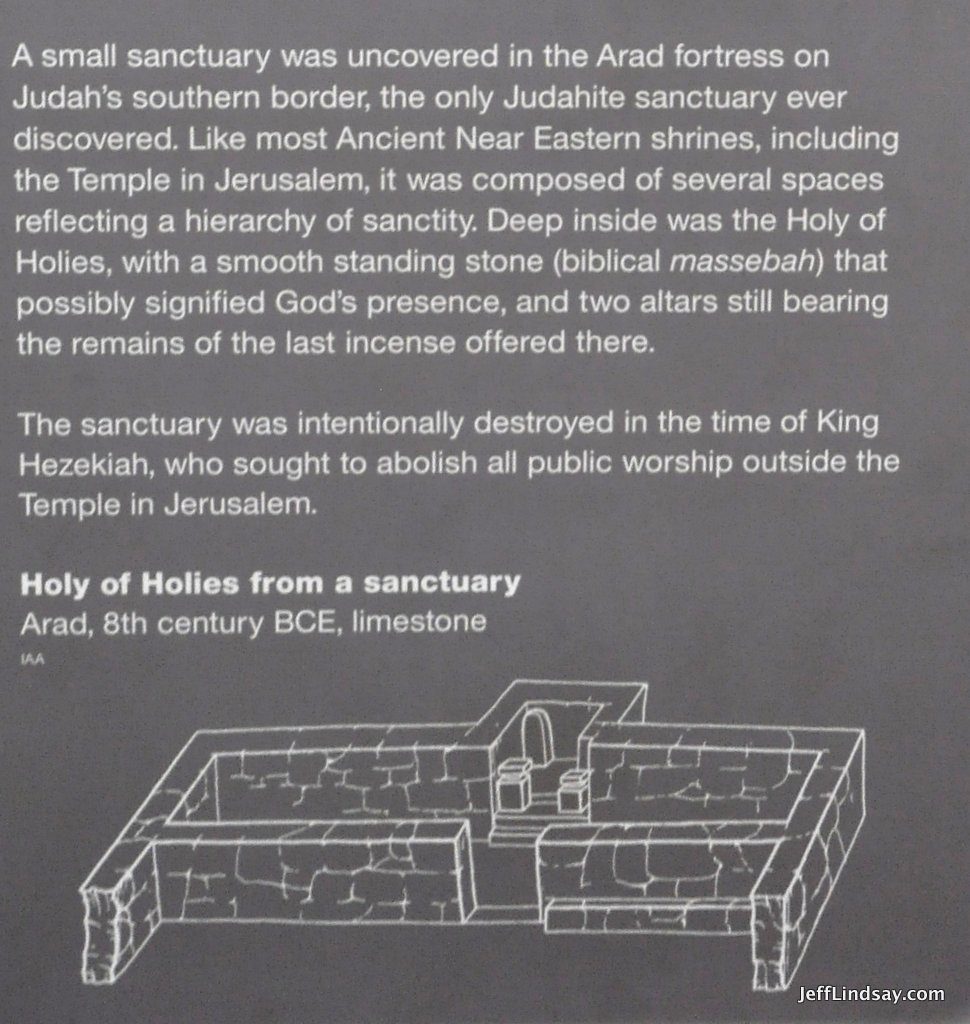We’ve had a few comments recently from people who disagree with the LDS view of the plan of salvation, especially our understanding of the purpose of life and the destiny of man. And much of this centers around an understanding of the Fall.
From our perspective, the childlike state of Adam and Eve in the Garden of Eden was not intended as the final state of mankind. For us to truly put on the divine nature and fulfill our destiny as glorified sons and daughters of God, it would be necessary for man to move beyond the innocence of the Garden and grapple with the dangerous gifts of knowledge and free agency. Why? That we might become more like Christ, even joint heirs with Him (Romans 8), destined to put on the divine nature (2 Peter 1) and become “like Him” (1 John 3:1). This required that we obtain the kind of knowledge and agency not available in the Garden. Remember, it was only after the Fall that the Lord said, “Behold, the man is become as one of us, to know good and evil . . . .” (Genesis 3:22).
Latter-day Saints differ from much of modern “mainstream” Christianity in their views on the Fall of man. Many other Christians teach that God intended for mankind to remain in the Garden of Eden without knowledge of good and evil, childlike and innocent. Adam is the great villain, who spoiled everything for the rest of us. As Augustine taught, Adam’s sin was so terrible that all human beings deserve to suffer eternal punishment because of him and the original sin that comes upon us because of Adam (see Seth Farber, “The Reign of Augustine,” The Christian Activist: A Journal of Orthodox Opinion, Vol. 13, Winter/Spring 1999, pp. 40-45,56). Adam’s rebellion forced God to come up with an (inferior) alternative to His original plan. One minister explained to me that this whole existence of ours and all that we go through is a big mistake, all because of that villain of villains, Adam.
In the LDS view, God’s plan was not thwarted. The sacrifice of Jesus Christ as the Lamb of God to rescue fallen mankind was not an unfortunate backup plan, but was a key part of God’s perfect plan from the beginning. Thus, the New Testament speaks of Christ as “the Lamb slain from the foundation of the world” (Rev. 13:8). In fact, it was God’s purpose from the beginning for all of us to be introduced into mortality where we would learn to walk in faith, to grow up and become accountable, choose to follow Him, and receive of His grace. Thus, the Fall of Man was intended. As Brigham Young explained, “The Lord knew they would do this and he had designed that they should” (Journal of Discourses, 10:103).
Adam and Eve, as innocents without knowledge of even their own nakedness (Gen. 2:25; 3:7), were unable to have children and were unable to keep the greater commandment that they had been given, to multiply and replenish the earth. This is my understanding based on the teachings of the Book of Mormon in 2 Nephi 2:22-23:
22 And now, behold, if Adam had not transgressed he would not have fallen, but he would have remained in the garden of Eden. And all things which were created must have remained in the same state in which they were after they were created; and they must have remained forever, and had no end.
23 And they would have had no children; wherefore they would have remained in a state of innocence, having no joy, for they knew no misery; doing no good, for they knew no sin.
It was God’s intent and sacred plan that they should have children, for as the Lord explains in Isaiah 45:18, He “created [the earth] not in vain, [but] he formed it to be inhabited.” God gave Adam and Eve a higher and a lower commandment – multiply on one hand, or avoid the tree of knowledge of good and evil on the other. God knew of Satan’s intent to stir up disobedience, but was one step ahead. Yes, Satan deceived Eve, and she partook of the fruit, which meant that she would be cast out of the Garden. Then Adam had to choose between staying in the Garden of Eden without Eve, where he could never hope to multiply, or following Eve into mortality by partaking of the fruit in order to keep the higher law. Adam, in choosing to partake of the fruit, Adam was transgressing a lower commandment to keep the higher law. Eve was deceived, but Adam was not, as the Bible states in 1 Tim. 2:14. What does this passage mean under “mainstream” views of Adam as a villain? Is there a more reasonable explanation than the LDS perspective, which holds, as the Book of Mormon teaches, that “Adam fell that men might be, and men are that they might have joy” (2 Nephi 2:25)?
Yes, Adam faced a dilemma because of Eve’s disobedience, and thus had to disobey one instruction to keep another that was more important (to multiply and replenish the earth). As a result of the transgression, they were cast out of God’s presence and became mortal, fallen creatures, yet they were blessed with knowledge of good and evil, free agency, and the ability to have children. But faced with death and the certainty of sin, they were doomed creatures – were it not for the foreordained role of the Messiah, who would redeem them and provide a way to return to the presence of God as glorious sons and daughters of the Father of glory. The end result is that God’s children, by passing through this fallen state of mortality, can gain knowledge of the glories of God and become joint heirs with Christ of all that God has (Rom. 8:14-18). We must taste the bitter to fully understand the sweet, and we must enter into the dangerous stage of mortality in order to receive the blessing of eternal life, which is God’s kind of life (not just immortality per se). The words of God to Enoch, recorded in the Book of Moses (given to Joseph Smith by revelation), summarize this powerful doctrine well (see Moses 6:55-61).
If Adam were the ultimate villain, it is puzzling that the Bible would speak of him as a symbol of Christ (“the figure of him that was to come” – Rom. 5:14) or say that he was not deceived (1 Tim. 2:14) or refer to Christ as the last Adam (1 Cor. 15:45). Yet Adam’s fall resulted in temporal death (being cut off from the physical presence of God; see Alma 42:7-9) and sin in the world, which could only be overcome through an infinite price paid by a sinless Redeemer who took our pains (the price of our sins) upon Him and sacrificed His own life that we might be free from the Fall and become new creatures in Him (Rom. 5:10-15; 2 Cor. 5:17-21). Christ’s Atonement overcomes spiritual death, the state of being cast out of God’s presence by sin, by having paid for our sins and offering us forgiveness through his cleansing blood, if only we will follow Him. His Atonement also overcomes physical death, the death of the body, by the power of the Resurrection, offering immortality to all (1 Cor. 15:21,22 – “For as in Adam all die, even so in Christ shall all be made alive”; see also John 5:28,29). Further, “temporal death” in Alma 42 refers to physical separation from God, more so than mere physical death, a catastrophe which the Atonement remedies for those who accept Christ.
Christ’s glorious role as Redeemer required that there be a Fall. Without the Fall, there would be no grace. Without temporal death (being physically cut off from the presence of God; see Alma 42:7-9), we could never be tried and there would be no righteousness. Without knowledge of sin, there would be no knowledge of goodness and thus no true appreciation of the glory of God. As the Book of Mormon teaches, there must be opposition in all things to achieve God’s purposes (see 2 Nephi 2).
The ultimate implication of the Fall is the possibility of having joy. True joy comes in knowing God and Christ and knowingly choosing to follow them, entering into their presence as sons and daughters who chose the good part and the grace offered by Christ. A babe without knowledge of good and evil cannot know the joy that comes with good, or the growth that comes by choosing the source of all good. It is through overcoming the trials of mortality, “our light affliction,” that we have hope of “a far more exceeding and eternal weight of glory” (2 Cor. 4:17). This mortal experience gives us the opportunity to become the “jewels” of God (Malachi 3:17), being refined and chosen in the furnace of affliction (Isaiah 48:10), enabled to sit with Christ in his throne if we overcome (Rev. 3:21). God wants us in heaven with Him and Christ. The Garden of Eden was not heaven. Our intended and long-planned destiny is not ignorant nakedness in the Garden of Eden, but as Paul said in 2 Cor. 5:2-4,
2 …we groan, earnestly desiring to be clothed upon with our house which is from heaven;
3 If so be that being clothed we shall not be found naked.
4 For we that are in this tabernacle do groan being burdened: not for that we would be unclothed, but clothed upon, that mortality might be swallowed up in life.
By the way, I’m pleased to note that not all non-LDS denominations feel that the Fall was a big mistake. A good treatise from someone a bit closer to our view is Erwin W. Lutzer in his book, Ten Lies about God (Word Publishing, Nashville, TN, 2000). See particularly Chapter 8, “Lie 8: The Fall Ruined God’s Plan,” pp. 137-157. Lutzer is a pastor at the Moody Church in Chicago.
A good resource for further reading is “Salvation History and Requirements” – chapter 4 of Barry Bickmore’s excellent book, restoring the Ancient Church.




248 thoughts on “Adam and the Fall: God’s Plan Thwarted?”